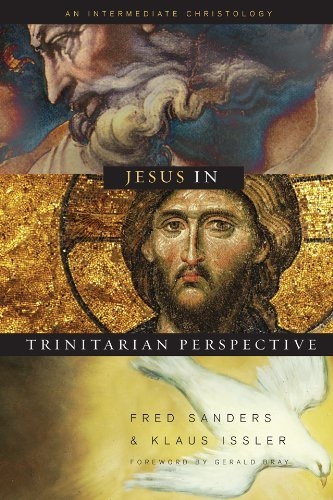Jesus in Trinitarian Perspective features six highly respected scholars from schools such as Erskine Theological Seminary, Talbot School of Theology, Dallas Theological Seminary, and Southern Baptist Theological Seminary. These scholars address an issue that has a significant impact on the way Christians should approach everyday evangelism but is often ignored: the fundamental fact that the Savior who died on the cross and rose from the dead is the eternal second person of the Trinity. The Christian church has confessed this truth since the early centuries, but many modern theologies have denied or ignored its implications. To clarify the complex issue, these writers approach “post-Chalcedonian” (451 AD) Christology from a variety of disciplines—historical, philosophical, systematic, and practical—thoroughly examining the importance of keeping Jesus Christ in trinitarian perspective. Major chapters include: “Introduction to Christology: Chalcedonian Categories for the Gospel Narrative,” “The Eternal Son of God in the Social Trinity,” “The One Person who is Jesus Christ: The Patristic Perspective,” “Metaphysical Models of the Incarnation: Person, Nature, Mind, and Will,” “The Atonement: A Work of the Trinity,” and “Jesus’ Example: Prototype of the Dependent, Spirit-Filled Life.” This introductory Christology book is written for advanced undergraduates and entry-level seminary students. Endorsements: Timothy George (Th.D., Harvard), founding Dean and Professor of Divinity, Beeson Divinity School of Samford University, executive editor of Christianity Today, and author of Theology of the Reformers “The doctrine of the Trinity, as expressed in the classic creeds of the early church, was the necessary theological expression of two non-negotiable biblical affirmations—the Old Testament declaration, “God is One” and the New Testament confession, “Jesus is Lord.”~ This superb collection of essays by evangelical scholars unpacks this great truth by giving the lie to the false dichotomy between the Jesus of history and the Christ of faith.~ A great primer in historical theology!” Don Thorsen (Ph.D., Drew), Professor of Theology, Haggard Graduate School of Theology, Azusa Pacific University, author of An Invitation to Theology: Exploring the Full Christian Tradition “The study of Jesus Christ is obviously important to all Christians. However, it is not obvious that he must be understood in light of the trinity. We must reflect upon Jesus' life and ministry in relationship to God, the Father, if we are rightly to appreciate and apply what scripture says about him. Likewise, we need to consider the person and work of the Holy Spirit throughout Jesus' life. Jesus in Trinitarian Perspective helps Christians to understand and appreciate the importance of the trinity in considering Jesus--the life he lived, the salvation he provided, and the role model for how we should live and minister. The book provides clear-cut axioms for investigating the dynamics and significance of Jesus' relationship to the Father and the Holy Spirit. Christians will benefit greatly from the variety of ways Jesus in Trinitarian Perspective explores who Jesus is, especially in light of who he is in relationship to God the Father and the Holy Spirit." Darrell Bock, (Ph.D., Aberdeen) Research Professor of New Testament Studies, Dallas Theological Seminary, author of Jesus According to Scripture, Studying the Historical Jesus, and commentaries on Luke (2 vols) and Acts “For a careful look at how Jesus has been understood theologically in the church, Jesus in Trinitarian Perspective is a solid walk through what is often dense terrain. There is much to ponder here. I am pleased to recommend it.” J.P. Moreland, Distinguished Professor of Philosophy, Biola University, author of Philosophical Foundations for a Christian Worldview and Kingdom Triangle “In recent years, intense research has been directed at christological and trinitarian themes with exciting and insightful results. Jesus in Trinitarian Perspective is on the cutting edge of this research because it is the only volume to approach these themes in a multi-disciplinary perspective. Faithful to scripture and Chalcedon yet creative and fresh, Sanders and Issler have given the church a theologically rich and devotionally practical guide to the person and work of Christ. Pastors and informed laypeople will profit greatly from this book. Moreover, it would be my first choice as a text in Christology.”
